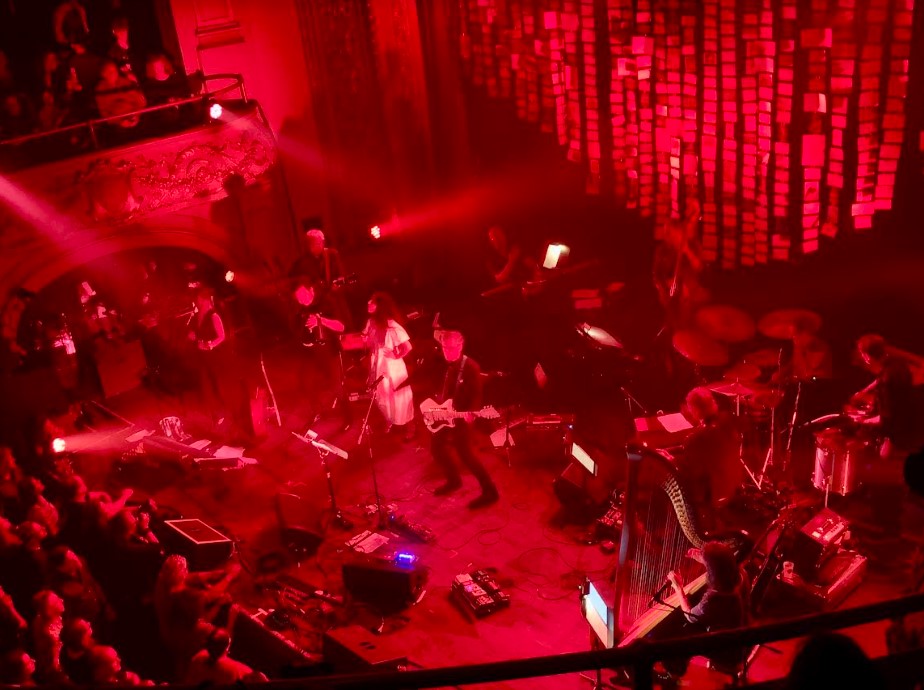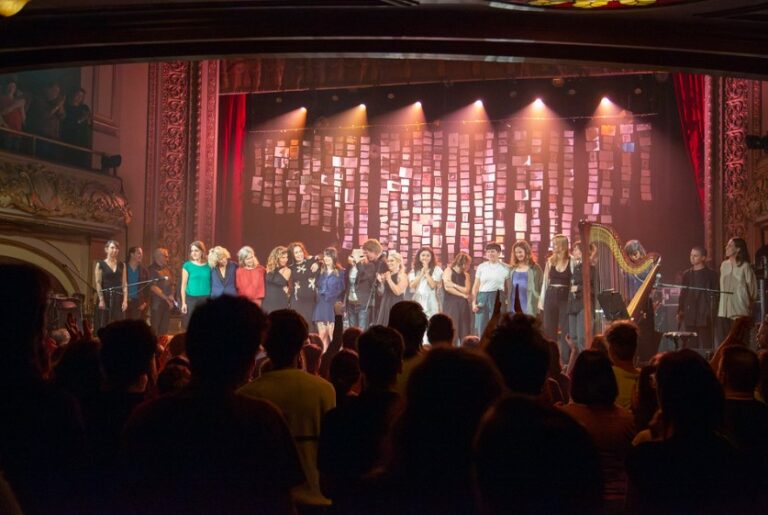What’s not to love about this tribute show? To hear Acadian Marie-Jo Thério, Argentinian Juana Molina, Québécoise Klo Pelgag and the Arizonan group Calexico, among others, commemorating Lhasa de Sela on the same stage was intriguing, to say the least.
The Rialto was packed for the occasion: a multi-generational crowd, Franco, Anglo, Latino, came to attend this cultural high mass, dedicated to a singer who has become an icon since her tragic death from cancer in 2010 at the age of 37.
It only took three albums for this Mexican-American, who has lived in Montreal and France, to achieve the mythical status she enjoys today. A fourth opus has just been added: as its title suggests, First Recordings is chronologically the first album.
I know people, and even fellow journalists, who find this phenomenon exaggerated. One friend confided to me that she didn’t understand the craze, that Lhasa’s voice annoyed her. But on that Sunday, September 29, there was no room for skeptics. One spectator recalled having discovered Lhasa during her first intimate concerts at Le Barouf or Le Quai de Brumes, small bars, smoky at the time, where Lhasa opened our ears to Mexican and Latino sounds.
This is also Lhasa’s legacy in Quebec: to open us up to others, while integrating ourselves here.
The show’s presenter, actress and author Nathalie Doummar, told us from the outset: these three hours of music would allow us to hear almost all of Lhasa’s music and lyrics. And we began to float.
The first wave featured Helena Deland, Klo Pelgag, Feist and Laurence-Anne, all indie-pop singers who set the table, each in their own way, with ballads in English and Spanish. With the excellent accompanying musicians, the evening was off to a flying start.
It’s impossible here to comment on each of the twenty-two performances, during this two-hundred-minute concert. We also heard excerpts from interviews with Lhasa de Sela, a vibrant testimonial from her sister Gaby, and readings of some of her texts. There was some not-so-good and some excellent, but never bad. And above all, a great deal of musical diversity.
Between the folk group Ambroise, Juana Molina alone with her keyboards, guitarist Yves Desrosiers and the Alt-Rock of Bibi Club, everyone had their own way of making a Lhasa song their own. In some cases, this would have benefited from more depth, but the emotion and spontaneity made up for it.
In my humble opinion, the highlight of the evening was the appearance of Mexican singer Silvana Estrada and the band Calexico. Silvana Estrada’s vocal range, which I mentioned in another concert review, stunned the room. She was like Lhasa De Sela power 3. After two solo songs, she accompanied Calexico and the room started dancing. The Tucson band was in top form.
There were other special moments: folk singer Myriam Gendron delivered an almost Crimson-like version of Anywhere On This Road. We also heard the Barr Brothers, Bia, Marie-Jo Thério, Samantha de la Vega, La Force…and the list goes on.
One small drawback, which several spectators mentioned to me: most of the artists on stage were not introduced. At times, you wondered who was singing. Not everyone knows some of the more niche artists, such as Silvana Estrada and Samantha de la Vega.
Whatever the case, the crowd was satiated and the fans got their money’s worth. If there are any tickets left for September 30, I encourage you to go.

























